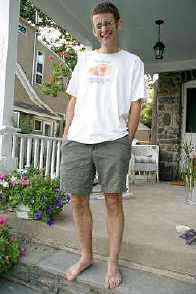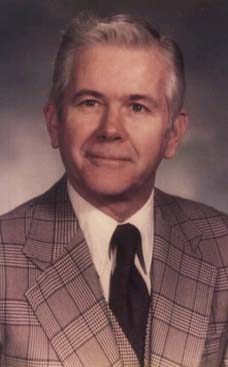
Recently, Zimmerman has turned his attention closer to home, targeting comments made by Senator Rick Santorum in an opinion piece for the Philadelphia City Paper. "That was really uncharacteristic of me," he explained. "But sometimes, to create the kind of dialogue you want, you have to attack people who speak purely out of ignorance." Santorum had attributed child molestation by Boston's Catholic priests to the "liberal culture" of that city.
Nepal RPCV Jonathan Zimmerman's book, "Whose America? Culture Wars in the Public Schools," provides a comprehensive overview of the struggles of various interest groups to frame both the historical and the moral content of public education
Pinning down the borough's well-traveled professor
By: ALICIA PUGLIONESI, Special to the Times
08/25/2005
The SEPTA R-5 line out of Narberth Station carries many a commuter to jobs in Center City, New Jersey, and beyond, but only the determined hold out for the long haul: a transfer to Amtrak at 30th Street and a ninety-minute journey to Penn Station in New York. Among the early-morning crowd of dozers and cell phone yakkers, Jonathan Zimmerman, the director of the History of Education Program at New York University's Steinhardt School of Education, can be found leafing through piles of student papers, red pen in hand.
"The key to whatever academic success I've enjoyed," said Zimmerman wryly, "is that time in the morning that I use to read papers and prepare for my classes." This may be something of an understatement - Zimmerman has led a life of travel and scholarship that give him a unique perspective on his chosen field of American history - but he doesn't hesitate to embrace the upsides of living in, and commuting from, the Pennsylvania suburbs.
Considering his schedule, it's no wonder Zimmerman regards the enforced captivity of the train as a welcome relief. In addition to teaching at NYU, he has published numerous books and articles about educational issues, as well as writing opinion columns for newspapers and magazines nationwide.
His 2002 book, Whose America? Culture Wars in the Public Schools, provides a comprehensive overview of the struggles of various interest groups to frame both the historical and the moral content of public education. Among the topics he addresses are school prayer, sex education, and multiculturalism, all of which continue to ruffle feathers on both ends of the political spectrum. Zimmerman, while chronicling the struggle of minority groups to receive their due credit in history texts, warns against what he calls a "dull consensus" in which schools celebrate every culture with a standardized formula or token figure and gloss over past conflicts and struggles.
With the recent decision by the Philadelphia school system mandating that all students take a class in African-American history, a new round of questioning arose about the best way to teach awareness of minority cultures.
"I am troubled by the separate course," said Zimmerman. "It lets the other courses off the hook; it promotes the idea that our histories are separate, which is not true." The story of Africa, the slave trade, and the African-American community's 200-year struggle for equality is "absolutely at the center of American history," and should be part of any normal history curriculum, he maintained.
This fall, Harvard Press will publish Zimmerman's third book. Innocents Abroad: American Teachers in the American Century, chronicles the experiences of U.S. educators working in foreign countries, a lifestyle that he has known intimately since childhood.
Born in Washington D.C., Zimmerman spent his elementary and middle school years living in India and Iran, where his parents served in the Peace Corps.
"I went to Bishop Cotton's School for Girls, in Bangalore; as you can imagine, it was a great place to be a teenage boy," he joked.
Even when his family returned to the States, Zimmerman retained something of the outsider's sense of fascination: "Being removed from America was what made America interesting to me," he said.
After receiving a bachelor's degree in Urban Studies from Columbia University, he too joined the Peace Corps, traveling to Nepal to teach English and train other teachers.
Ironically, it was during this period abroad that his passion for American history matured. "Spending a quarter of my life overseas has given me a critical perspective on the United States," Zimmerman reflected; "it's given me the desire to scrutinize the claims we make about ourselves."
While many of his Peace Corps colleagues returned home to study cultural anthropology, Zimmerman immersed himself in U.S. history at Johns Hopkins University, earning a doctorate degree in 1993.
For Zimmerman, the fascination of America's past stems from the series of ongoing conflicts that have shaped the national character. "Debating our differences may be the only thing that holds us together," he wrote in Whose America.
Sadly, when it comes to public education, Zimmerman fears that these conflicts get glossed over. "Of the lies taught in public schools," he said, "the biggest is that adults agree. We frame education as a series of names and dates, rather than a debate. We pretend that knowledge is a Mosaic tablet that never changes."
When he began teaching at high schools in Maryland and Vermont in the early 90's, Zimmerman got a firsthand perspective on the difficulties facing educators who want to reinvigorate the study of history. "Kids naturally want to ask questions," he explained, "but often it's the adults who are afraid to let kids challenge them," for fear that order will collapse. "Teachers don't have a huge amount of authority in our culture," said Zimmerman, relating a story about a young teacher he knew while working in Vermont. Like many who seek to move beyond a system of rote learning, the teacher had urged his class to think independently and draw their own conclusions about the course material. "There was this very quiet kid who sat in the back of the room. One day, the kid raises his hand and said, 'You want us to form our own opinions, right? Well, my opinion is, you suck!'"
Zimmerman himself has been on the receiving end of many such sentiments. His opinion columns in the New York Times, the Washington Post and the Philadelphia Inquirer draw some, well, "spirited" responses from people of different political persuasions. "I enjoy these exchanges," he said, "especially the really angry ones. I am, in my own way, a patriot; what I'm proud of is that I live in a country where anyone who can read a newspaper can e-mail me and bust me down to size."
It's exactly that sort of "vibrant political culture" that should be promoted in our schools, he says. "One of the reasons that kids hate history - and it comes in last of all the major subjects - is that we maintain this illusion of consensus."
In his post at NYU, Zimmerman works with graduate students studying the history of education, many of whom will go on to teaching jobs themselves.
He encourages his students to seek their own understanding of issues such as the mainstreaming of special ed. students and bilingual education. "The dogma prevalent at some school is really anathema to intellectual growth," he said.
Recently, Zimmerman has turned his attention closer to home, targeting comments made by Senator Rick Santorum in an opinion piece for the Philadelphia City Paper.
"That was really uncharacteristic of me," he explained. "But sometimes, to create the kind of dialogue you want, you have to attack people who speak purely out of ignorance." Santorum had attributed child molestation by Boston's Catholic priests to the "liberal culture" of that city.
Zimmerman also uses his free time in the summer to produce scholarly research for publications like the Journal of American History. This fall, he'll return to the daily grind of teaching courses and grading papers. "My goal," he says, "is not to miss more than two or three family dinners a week."
Some might wonder: why not relocate closer to the Big Apple, and cut out the lengthy commute? For Zimmerman, it boils down to the old maxim, "If it ain't broke, don't fix it." "Greenwich Village is a vibrant, energetic, diverse place," he says, "but our experience here has been wonderful."
With two daughters in the Lower Merion School District, and his wife Susan's pediatric post at the Children's Hospital of Philadelphia, any temptation to move for convenience is tempered by the many advantages that the family's current digs offer. "Through my work, I've gotten a sense of the norm in public education," he said, "and our local schools far exceed the norm."
As an expert in education, hasn't he ever felt the need to jump in and critique the content and method of his daughters' schooling? "Large schools will inevitably have problems," he shrugged, "but around here they're minimal.
The only thing that bothers me is how much people complain." High praise, indeed, from a man who knows the system, and it's controversies, inside and out.
©Main Line Times 2005










